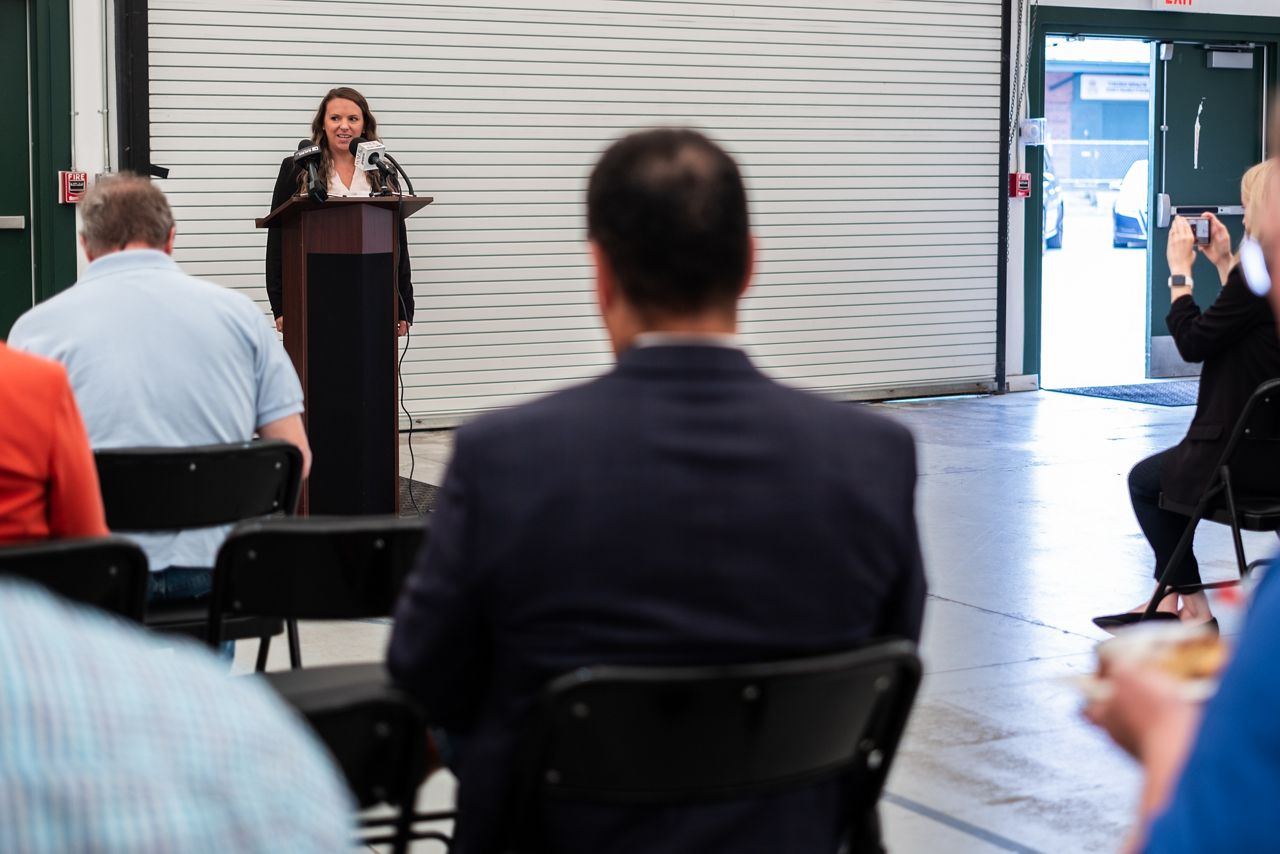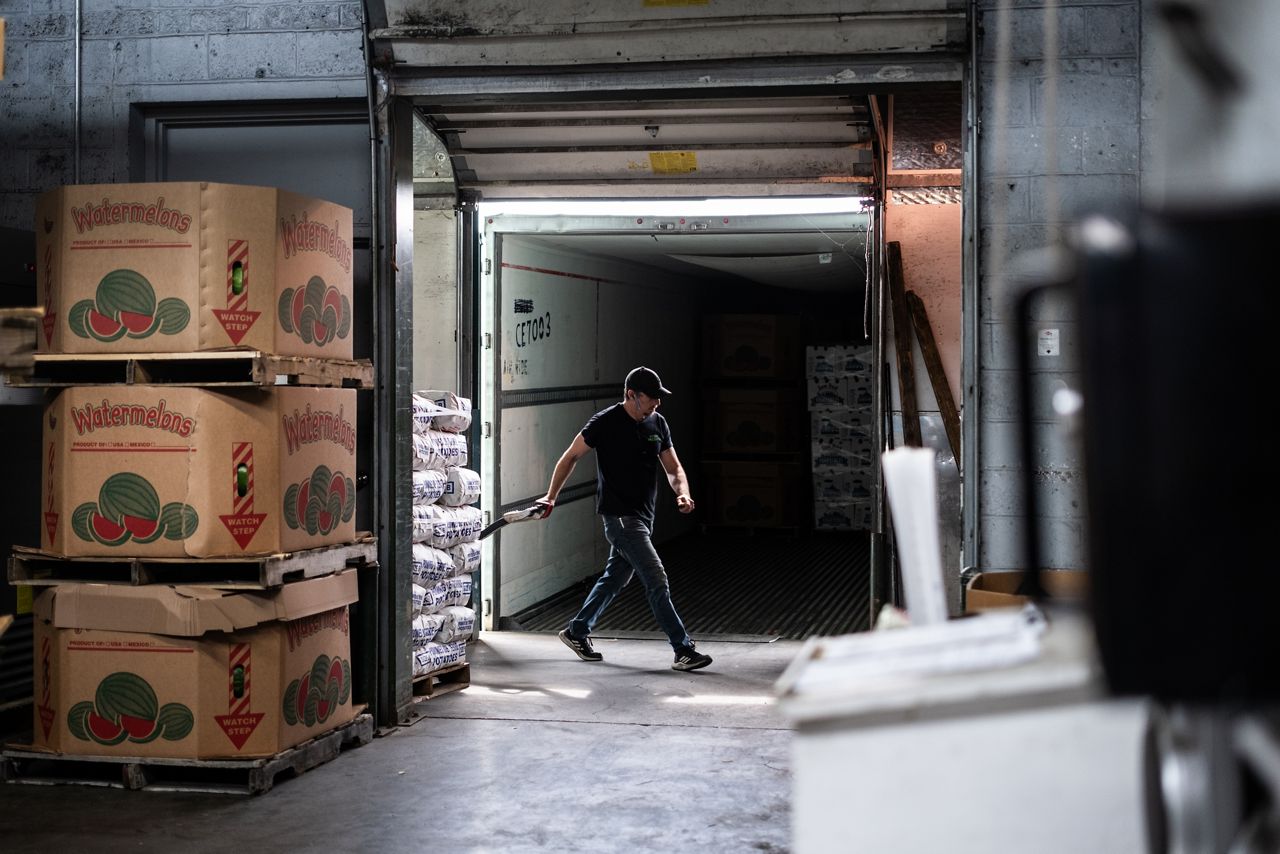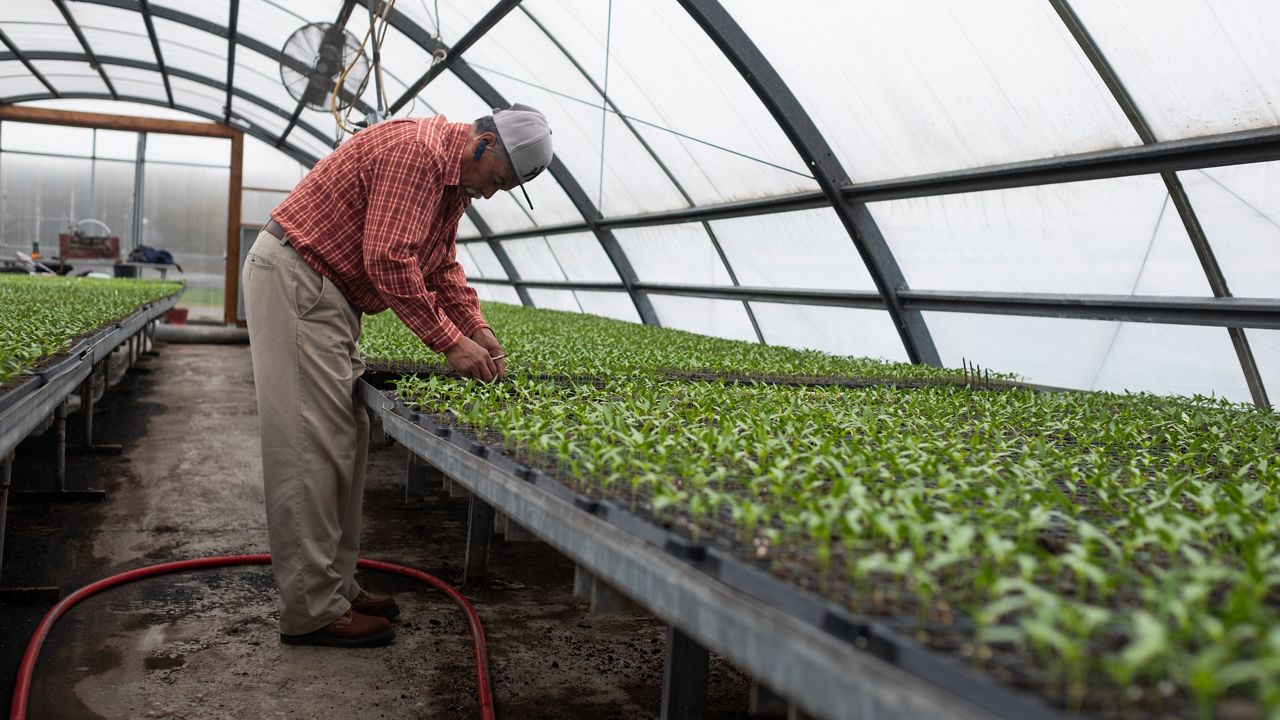Vicki Griffith, owner of Buda's Meats and Produce, closed her business in 2022 after an increase in rent from the CNY Regional Market.
The market increased her rent from $6,200 to $10,500. That night, Griffith said she gave the market a month’s notice of lease termination — ending three generations of selling at the market.
“I was devastated because this was my life. I’d done this my whole life,” Griffith said. “Going forward 28 months since we’ve been there, and I still have not received my security deposit which is about $13,000.”
An audit from the New York comptroller’s office showed the historical CNY Regional Market in Syracuse facing financial challenges due to mismanagement of money and leases, and many vendors, including Griffith, have voiced poor experiences.
And according to the April 2024 board meeting minutes, as of March 27, there is an income deficit of $702,655 year-to-date for the CNY Regional Market Authority.

The current executive director, Amanda Vitale, was brought on in January 2020 to take over the position from her father, Ben Vitale, who worked as executive director for 22 years.
In her tenure leading the market, from 2020 to 2023, public records show the market’s cash available for operation declined from $387,331 to a deficit of $97,470 at the end of last year.
Most of the market’s income comes from commercial leases, serving as a landlord for businesses renting their space.
The CNY Regional Market opened in 1938 and is a state entity.
Lease revenue dries up
The market had not increased Buda’s rent in 10 to 15 years prior to 2022, but Griffith said the increase didn’t match the lack of investment they made in the building, leaving in place what she believed to be subpar infrastructure.
“The one thing that does bother me about the market is anytime you ask for something to be done, [the market staff doesn’t] want to know anything about it,” Griffith said.
At one point, she cemented over a drain where water was coming up that the market did not repair after she reported it to them. During the winter months, Griffith had to redirect trucks due to insufficient plowing.
Her space in the building has since been empty and hasn’t brought any income to the market in 28 months. However, according to board meeting minutes from April, the market is entering an agreement with a new tenant for the space with a rent of $8,500 per month — $2,000 less than they asked from Griffith.
Vitale has not responded to multiple attempts to reach her for comment over this month-long investigation.
Another tenant, who requested anonymity because they were concerned about negative impacts on their business, said when repairs were done to buildings owned by the market, it caused more damage. Citing lack of follow-up and communication from market leadership, the tenant has taken to doing some repairs themselves.

In September 2020, the regional market purchased another warehouse for $2.3 million at 513 Hiawatha Boulevard East in Syracuse, a move that board member and now current President Tony Emmi supported.
“When the market decided to purchase that, I was on the board, and it did seem like a great deal. We had the Syracuse School District and the previous owner had stayed in there, but we knew he was only going to be there for a year,” Emmi said in an interview.
The school district had planned to do food distribution and prep in the warehouse while the previous owner, Fox Hollow Movers, ran his moving business there.
However, the company moved out in March 2022 and the school district moved out in May 2023. The building is “unrentable” due to damage to the roof and from vandalism in July 2023, according to the comptroller’s audit.
At the end of an audit period in October 2023, records show the building had cost the market over $175,000. It is estimated that repairs will cost another $3.2 million.
Complaints are not limited to the long-term tenants of the market.
Melanie Nicotra operates greenhouses in Kirkville and sells her flowers at the regional market each Saturday. When the executive director position became open in 2019, Nicotra expressed interest in applying, but she said she was discouraged by the market staff.
“They wanted a bachelor’s; I have a bachelor’s. At that point, I had 30 years of farming [experience]. They wanted [experience] running a business, I had that,” Nicotra said.
But four years after not seeking out the job, Nicotra said she now keeps primarily to herself without getting involved in what’s happening at the market. Additionally, she highlighted that the rent for farmers market vendors has increased.
“It’s almost $1,000 for farmers per season for May to October. For somebody that’s selling everything else, I think it’s like $2,200 to $2,300,” Nicotra said.
Audit questions ex-director payments
For the fiscal year 2022-2023, payroll expenses accounted for $369,144 more than budgeted, and the commercial leases were $316,500 under budget, the audit found. In 2024-2025, payroll accounts for $900,000 of the market’s nearly $2.2 million budget with currently 17 employees.
According to documents from the nominating and personnel committee meeting on July 6, 2023, Amanda Vitale makes a salary of $106,000 per year before overtime.
The audit found that from 2020 to 2023, Ben Vitale, the former executive director, was paid a total of $212,154 to “handle special projects, including snowplowing.”
“The previous executive director was kept on; he’d worked at the market for 22 years. He was asked to stay on by the previous board president because of his knowledge of the facilities above ground and underground,” Emmi said.
The numbers are correct, Emmi said, but he still appreciates the work Vitale put into the market during and after his time on staff.
“A lot of times, he was the only person working during COVID on the market, taking care of admin duties, snow removal, just whatever he could because people were obviously sick, or scared they were going to get sick,” Emmi said.
The audit highlighted that there was never a job description for Ben Vitale or reports on hours he worked.
“There was confusion with the board. We never really voted on a job description or an end time for his services,” Emmi said.
Infrastructure in need of repair
In January 2023, the Regional Market announced they would ask the state for $91 million to correct “massive infrastructure failures.” Engineers determined that would be the funding needed to bring the market up to modern standards, including $30 million to $35 million for a new warehouse, Emmi said.
However, they didn’t receive any of that funding as it was not included in the state’s budget.
“As far as I know, the market, as a state authority, has never received funds from the state on a regular basis. It did have $8.4 million put into it and I think that was in the early ’90s. Much of that was cosmetic work,” Emmi said.
The New York State Historic Preservation Office helped fund the repairs in the early 1990s, but to protect the historic nature of the building, the repairs were done with hand tools and therefore resurfaced.

Before COVID, there were some reactive repairs to the administrative building that totaled about $320,000, Emmi said.
“The brick facade fell because the rust continued in there from the first repairs that weren’t done right in the early ’90s and we had problems with the ceiling leaking in there,” Emmi said.
To fund further repairs, the regional market borrowed $2.2 million through refinancing mortgages and getting a line of credit for the fiscal year 2022-2023. Additionally, they have an unclaimed $2 million grant from the New York State Capital Assistance program.
What's next
In the board meeting packet for the upcoming meeting scheduled for Monday, taking steps to claim this grant funding is listed as a priority for the corrective action plan.

State Sen. Rachel May, D-Syracuse, said the audit was worse than they expected.
“We didn’t realize it was going to be as bad as it was, and so I think it was a wakeup call for us in government, but also for the board,” May said.
May and Assemblyman Bill Magnarelli, D-Syracuse, sponsored legislation that is now awaiting signature from Gov. Kathy Hochul that would add two board appointments by the Onondaga County executive and two appointments by the mayor of Syracuse.
"I do not want to see it fail. It is too important to our community," Magnarelli said. "The authority and local and state governments are taking steps to help the market at this time to meet the challenges it faces in the coming years."
Additionally, they have bookmarked funding for the market, but would like to see changes first.
“We don’t want to spend it until we see a credible plan for where it’s going so, we’re waiting for that,” May said.









